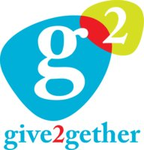Description

Auctria

Evergiving
Comprehensive Overview: Auctria vs Evergiving
Auctria and Evergiving are both platforms designed to support fundraising efforts, but they cater to different types of organizations and possess distinct functionalities.
Auctria
a) Primary Functions and Target Markets:
- Primary Functions: Auctria offers a suite of tools for managing auctions, both online and onsite. Its features include managing auction items, bidding, payment processing, and post-auction reports. With these tools, organizations can streamline their fundraising auctions, whether silent, live, or virtual.
- Target Markets: Auctria primarily caters to nonprofit organizations, schools, charities, and clubs that conduct auctions as a means of fundraising. Its offerings are particularly well-suited for organizations looking to engage their communities through auction events.
b) Market Share and User Base:
- Auctria has carved out a niche in the charity auction sector. While comprehensive market share data is not typically disclosed, Auctria is recognized among mid-sized and small-scale nonprofits that frequently conduct auctions. Its user base includes schools, PTAs, and community organizations.
c) Key Differentiating Factors:
- Ease of Use and Setup: Auctria is known for its user-friendly interface, which simplifies the setup and management of auctions, making it accessible for organizations without advanced technical expertise.
- Affordability: Offers competitive pricing models, making it attractive for smaller nonprofit organizations.
- Auction Focus: Unlike general fundraising platforms, Auctria specializes in auction-based events, offering specific tools and features tailored for such activities.
Evergiving
a) Primary Functions and Target Markets:
- Primary Functions: Evergiving provides comprehensive donor management and fundraising solutions with a strong emphasis on regular giving and continuous donor relationships. Its functionalities include donor recruitment, engagement, retention, and communication tools.
- Target Markets: Evergiving primarily targets charities and nonprofit organizations that focus on building long-term donor relationships and sustaining regular giving programs. It is particularly popular among larger NGOs and international organizations that manage extensive donor bases.
b) Market Share and User Base:
- Evergiving's market presence is significant among large-scale charities, especially those engaged in face-to-face fundraising. It is recognized globally, with a substantial number of users across continents, particularly in countries with a robust charity sector.
c) Key Differentiating Factors:
- Regular Giving Focus: Unlike platforms that focus on one-time fundraising events, Evergiving emphasizes continuous giving and donor lifecycle management.
- Global Reach: Strong international presence, supporting multiple currencies and languages, which is beneficial for organizations operating across different regions.
- Comprehensive CRM Features: Offers an advanced CRM system integrated with its fundraising platform, providing robust analytics, reporting, and donor management tools.
Comparing Auctria and Evergiving
- Functionality Orientation: Auctria is event-focused, specifically catering to auction-based fundraising, while Evergiving is oriented towards sustaining long-term donor relationships with an emphasis on regular giving campaigns.
- Target Audience Size: Auctria tends to cater to smaller organizations with limited budgets for individual events, while Evergiving is ideal for larger organizations with ongoing fundraising programs.
- Geographic Focus: Auctria has a strong presence in regions with active community and school-based auction events, whereas Evergiving's international capabilities make it suitable for NGOs operating globally.
- Technical Complexity: Evergiving offers a rich feature set suitable for advanced fundraising teams, whereas Auctria provides straightforward auction management tools.
In summary, the choice between Auctria and Evergiving will largely depend on the fundraising strategies and operational scale of the organization. Auctria is optimal for organizations focusing on auctions as fundraising events, whereas Evergiving suits those looking to maintain long-term donor engagement and regular giving initiatives.
Contact Info

Year founded :
2011
+1 762-309-1234
Not Available
United States
http://www.linkedin.com/company/auctria

Year founded :
2010
+61 3 9020 4466
Not Available
Australia
http://www.linkedin.com/company/evergiving
Feature Similarity Breakdown: Auctria, Evergiving
When comparing Auctria and Evergiving, both platforms are designed to assist with fundraising efforts but cater to slightly different aspects of the nonprofit sector. Here's a breakdown of their features, user interfaces, and unique offerings:
a) Core Features in Common
-
Fundraising Management: Both platforms offer tools for managing various types of fundraising activities, though their focus might differ slightly (Auctria on auctions and Evergiving more broadly on donations and campaigns).
-
Donor Management: They provide features to help organizations manage donor relationships, track donations, and maintain donor data for better engagement and reporting.
-
Payment Processing: Secure online payment processing capabilities are a must-have for any fundraising tool, and both platforms facilitate transactions for their respective fundraising activities.
-
Reporting and Analytics: Basic analytics and reporting tools are available on both platforms to help organizations assess their fundraising performance and make data-driven decisions.
-
Event Management: While Auctria specializes in auction events, both platforms support some form of event management to streamline the fundraising process.
b) User Interface Comparison
-
Auctria: The user interface of Auctria is designed with auction management in mind. It generally presents a user-friendly dashboard that focuses on auction set-up, item tracking, and bid management. Users can easily navigate through different components such as item catalogs and bidder lists, which is essential for live and online auction environments.
-
Evergiving: Evergiving offers a more straightforward and clean interface that emphasizes donation management and campaign tracking. It's built to facilitate ease of use for recurring donations and ongoing fundraising campaigns rather than event-based fundraising alone. The layout is intuitive for both desktop and mobile applications, catering to field fundraisers as well.
c) Unique Features
-
Auctria:
- Auction Specific Tools: Auctria's unique focus on auctions means it offers comprehensive tools specifically for auction creation, management, and execution. This includes auction websites, online bidding, live and silent auctions, auction catalogs, and winning bidder notifications.
- Seamless Integration for Auctions: The platform integrates easily with various auction activities, including pre-event, event day, and post-event tasks, which is critical for organizations running comprehensive auction programs.
-
Evergiving:
- Recurring Donation Management: Evergiving excels in handling recurring donations, acting more like a CRM for ongoing donor management. This is a key feature for non-profits focusing on sustaining long-term donor relationships.
- Field Fundraiser Tools: Unique to Evergiving is its focus on field fundraisers, with mobile apps that allow for real-time data entry and interaction with donors on-the-go, which is beneficial for organizations that engage in personal or face-to-face fundraising efforts.
- Customizable Campaign Pages: The ability to create tailored campaign pages easily is a boon for organizations that run diverse fundraising campaigns requiring individual branding and storytelling.
While both platforms share some core functionalities to support fundraising, they cater to different needs within the nonprofit fundraising landscape. Auctria's strength lies in its detailed auction capabilities, while Evergiving focuses on broader donation management and fostering donor relationships over time.
Features

Auction Management
Donor Engagement
User Experience
Reporting and Analytics

Donor Management
Mobile App Integration
Fundraising Campaign Management
Reporting and Analytics
Payment Processing
Best Fit Use Cases: Auctria, Evergiving
Auctria and Evergiving are two distinct platforms that cater to charitable organizations, but they serve different needs and are tailored for different scenarios. Here's a breakdown of their best-fit use cases and how they cater to different industry verticals or company sizes:
Auctria
Auctria is specifically designed for fundraising events and is particularly well-suited for:
a) Types of Businesses or Projects:
- Nonprofits and Charities: Organizations looking to raise funds through auctions will find Auctria particularly beneficial. It supports both live and silent auctions, as well as online auction events.
- Schools and Educational Institutions: Schools that conduct fundraising auctions for activities, development projects, or other school-related purposes can leverage Auctria’s capabilities effectively.
- Community Groups and Clubs: Local clubs or community groups organizing events to raise money can benefit from the easy setup and management of auction events via Auctria.
d) Industry Verticals or Company Sizes:
- Small to Medium-Sized Nonprofits: Auctria is accessible and affordable, making it a great choice for smaller organizations that do not have the extensive budget required for more comprehensive platforms.
- Various Sectors within Nonprofits: While education is a significant sector, Auctria also supports arts, healthcare, and any other sector within the nonprofit landscape that relies on event-based fundraising.
Evergiving
Evergiving is focused more broadly on donor management and sustained giving, making it a fit for scenarios prioritizing ongoing fundraising and donor engagement:
b) Preferred Scenarios:
- Organizations Prioritizing Sustained Giving: Nonprofits focused on securing regular, repeat donations, such as those in development or advocacy roles, will find Evergiving advantageous.
- International and Large Campaigns: NGOs and larger organizations running extensive campaigns requiring robust donor management systems, including recurring donations and complex CRM functionalities.
- Religious and Faith-Based Organizations: These entities often rely on sustained giving and benefit from Evergiving’s capabilities to manage parishioner contributions and campaigns.
d) Industry Verticals or Company Sizes:
- Medium to Large Nonprofits and NGOs: Larger organizations with complex needs and the resources to implement and manage comprehensive donor management systems will find Evergiving a good fit.
- Sector Versatility: Suitable for healthcare nonprofits, environmental organizations, humanitarian aid, and international relief agencies, which often need the kind of detailed donor engagement and management capabilities Evergiving can provide.
Conclusion
Both Auctria and Evergiving cater to nonprofits but have different focuses and strengths. Auctria excels in auction-based event fundraising for smaller to medium-sized nonprofits, while Evergiving supports ongoing donor management for medium to large organizations with more complex giving structures and needs. When choosing between the two, organizations should consider the nature of their fundraising activities, the size of their donor base, and their long-term fundraising goals.
Pricing

Pricing Not Available

Pricing Not Available
Metrics History
Metrics History
Comparing teamSize across companies
Conclusion & Final Verdict: Auctria vs Evergiving
Conclusion and Final Verdict for Auctria and Evergiving
a) Considering all factors, which product offers the best overall value?
The decision on which product offers the best overall value between Auctria and Evergiving largely depends on the specific needs of the organization or individual using them.
-
Auctria: This platform is typically suited for organizations looking to conduct auctions and manage various types of fundraising events. It's highly effective for non-profits and smaller organizations that want a comprehensive tool for running auctions.
-
Evergiving: This platform specializes in continuous and automated giving solutions, making it ideal for organizations focused on donor management and establishing long-term donor relationships rather than one-time fundraising events.
If your primary focus is on conducting efficient and successful fundraising events through auctions, Auctria might offer the best value. Conversely, if your focus is on sustained donor engagement and management, Evergiving may be more valuable.
b) Pros and Cons of Choosing Each Product
Auctria Pros:
- Comprehensive auction management tools suitable for live, silent, and online auctions.
- Easy-to-use interface with quick setup for fundraising events.
- Offers integrated payment processing.
- Cost-effective for one-time event-based fundraising.
Auctria Cons:
- May not support robust donor engagement features as efficiently.
- Primarily focused on auctions, limiting its utility for broader fundraising strategies.
Evergiving Pros:
- Strong emphasis on donor management, engagement, and long-term relationship building.
- Excellent tools for recurring donations and sustaining donor connections.
- Strong focus on automation and donor interaction, which can increase efficiency.
Evergiving Cons:
- May not provide as specialized solutions for event-based fundraising auctions.
- Potentially higher costs for organizations whose primary focus is on event fundraising.
c) Specific Recommendations for Users Trying to Decide Between Auctria and Evergiving
-
Assess Your Fundraising Focus: Determine whether your organization prioritizes long-term donor engagement or event-based fundraising. If the former, lean towards Evergiving; if the latter, consider Auctria.
-
Consider Organization Size and Needs: Smaller organizations or those focused on specific, time-bound fundraising events might find Auctria more straightforward and cost-effective. Larger organizations focused on building robust donor networks might benefit more from Evergiving's features.
-
Evaluate Budget and Resources: Consider the budget and resources available. If both platforms meet your basic needs, your decision might come down to subscription costs and integration expenses with existing systems.
-
Test Both Platforms: If possible, trial both platforms to see which interface and features align best with your organization's workflow and user preferences.
Ultimately, your choice should align with your fundraising strategy, resource availability, and long-term goals. Both platforms offer unique strengths, and selecting the right one depends on understanding those strengths in the context of your specific needs.
Add to compare
Add similar companies




